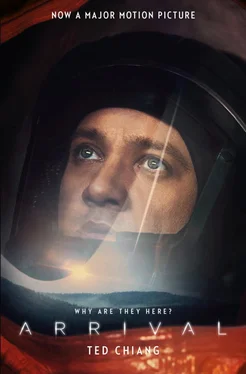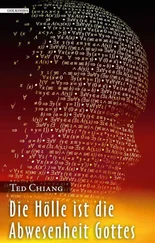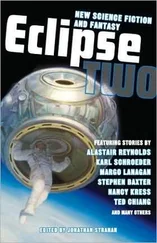‘You’re indulging a fancy,’ replied Ashbourne. ‘The technical difficulty of inducing multiple generations is such that I’d sooner wager on our successfully sprouting wings and taking flight. Inducing two generations would be ambitious enough.’
The two men discussed strategies late into the night. If they were to conceal the true name of any name they presented to Lord Fieldhurst, they would have to forge a lengthy trail of research results. Even without the additional burden of secrecy, they would be engaged in an unequal race, pursuing a highly sophisticated name while the other nomenclators sought a comparatively straightforward euonym. To make the odds less unfavorable, Ashbourne and Stratton would need to recruit others to their cause; with such assistance, it might even be possible to subtly impede the research of others.
‘Who in the group do you think shares our political views?’ asked Ashbourne.
‘I feel confident that Milburn does. I’m not so certain about any of the others.’
‘Take no chances. We must employ even more caution when approaching prospective members than Lord Fieldhurst did when establishing this group originally.’
‘Agreed,’ said Stratton. Then he shook his head in disbelief. ‘Here we are forming a secret organization nested within a secret organization. If only foetuses were so easily induced.’
It was the evening of the following day, the sun was setting, and Stratton was strolling across Westminster Bridge as the last remaining costermongers were wheeling their barrows of fruit away. He had just had supper at a club he favored, and was walking back to Coade Manufactory. The previous evening at Darrington Hall had disquieted him, and he had returned to London earlier today to minimize his interaction with Lord Fieldhurst until he was certain his face would not betray his true feelings.
He thought back to the conversation where he and Ashbourne had first entertained the conjecture of factoring out an epithet for creating two levels of order. At the time he had made some efforts to find such an epithet, but they were casual attempts given the superfluous nature of the goal, and they hadn’t borne fruit. Now their gauge of achievement had been revised upward: their previous goal was inadequate, two generations seemed the minimum acceptable, and any additional ones would be invaluable.
He again pondered the thermodynamic behavior induced by his dexterous names: order at the thermal level animated the automata, allowing them to create order at the visible level. Order begetting order. Ashbourne had suggested that the next level of order might be automata working together in a coordinated fashion. Was that possible? They would have to communicate in order to work together effectively, but automata were intrinsically mute. What other means were there by which automata could engage in complex behavior?
He suddenly realized he had reached Coade Manufactory. By now it was dark, but he knew the way to his office well enough. Stratton unlocked the building’s front door and proceeded through the gallery and past the business offices.
As he reached the hallway fronting the nomenclators’ offices, he saw light emanating from the frosted-glass window of his office door. Surely he hadn’t left the gas on? He unlocked his door to enter, and was shocked by what he saw.
A man lay facedown on the floor in front of the desk, hands tied behind his back. Stratton immediately approached to check on the man. It was Benjamin Roth, the kabbalist, and he was dead. Stratton realized several of the man’s fingers were broken; he’d been tortured before he was killed.
Pale and trembling, Stratton rose to his feet, and saw that his office was in utter disarray. The shelves of his bookcases were bare; his books lay strewn facedown across the oak floor. His desk had been swept clear; next to it was a stack of its brass-handled drawers, emptied and overturned. A trail of stray papers led to the open door to his studio; in a daze, Stratton stepped forward to see what had been done there.
His dexterous automaton had been destroyed; the lower half of it lay on the floor, the rest of it scattered as plaster fragments and dust. On the worktable, the clay models of the hands were pounded flat, and his sketches of their design torn from the walls. The tubs for mixing plaster were overflowing with the papers from his office. Stratton took a closer look, and saw that they had been doused with lamp oil.
He heard a sound behind him and turned back to face the office. The front door to the office swung closed and a broad-shouldered man stepped out from behind it; he’d been standing there ever since Stratton had entered. ‘Good of you to come,’ the man said. He scrutinized Stratton with the predatory gaze of a raptor, an assassin.
Stratton bolted out the back door of the studio and down the rear hallway. He could hear the man give chase.
He fled through the darkened building, crossing workrooms filled with coke and iron bars, crucibles and molds, all illuminated by the moonlight entering through skylights overhead; he had entered the metalworks portion of the factory. In the next room he paused for breath, and realized how loudly his footsteps had been echoing; skulking would offer a better chance at escape than running. He distantly heard his pursuer’s footsteps stop; the assassin had likewise opted for stealth.
Stratton looked around for a promising hiding place. All around him were cast-iron automata in various stages of near-completion; he was in the finishing room, where the runners left over from casting were sawed off and the surfaces chased. There was no place to hide, and he was about to move on when he noticed what looked like a bundle of rifles mounted on legs. He looked more closely, and recognized it as a military engine.
These automata were built for the War Office: gun carriages that aimed their own cannon, and rapid-fire rifles, like this one, that cranked their own barrel-clusters. Nasty things, but they’d proven invaluable in the Crimea; their inventor had been granted a peerage. Stratton didn’t know any names to animate the weapon – they were military secrets – but only the body on which the rifle was mounted was automatous; the rifle’s firing mechanism was strictly mechanical. If he could point the body in the right direction, he might be able to fire the rifle manually.
He cursed himself for his stupidity. There was no ammunition here. He stole into the next room.
It was the packing room, filled with pine crates and loose straw. Staying low between crates, he moved to the far wall. Through the windows he saw the courtyard behind the factory, where finished automata were carted away. He couldn’t get out that way; the courtyard gates were locked at night. His only exit was through the factory’s front door, but he risked encountering the assassin if he headed back the way he’d come. He needed to cross over to the ceramicworks and double back through that side of the factory.
From the front of the packing room came the sound of footsteps. Stratton ducked behind a row of crates, and then saw a side door only a few feet away. As stealthily as he could, he opened the door, entered, and closed the door behind him. Had his pursuer heard him? He peered through a small grille set in the door; he couldn’t see the man, but felt he’d gone unnoticed. The assassin was probably searching the packing room.
Stratton turned around, and immediately realized his mistake. The door to the ceramicworks was in the opposite wall. He had entered a storeroom, filled with ranks of finished automata, but with no other exits. There was no way to lock the door. He had cornered himself.
Читать дальше











